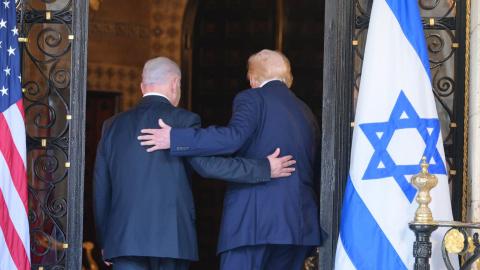Warning: Fighting ISIS Could Strengthen Iran
JERUSALEM, Israel -- It seems the military might of the world is focused on the Islamic State and that is worrying some in the Middle East who believe an even greater danger is lurking in the region.
For the first time in years, much of the world and many Arab countries appear unified -- this time against ISIS terrorists. Israeli Prime Minister Benjamin Netanyahu, however, continues to sound the alarm over the danger of a nuclear-armed Iran.
"Make no mistake, ISIS must be defeated. But to defeat ISIS and leave Iran as a threshold nuclear power is to win the battle and lose the war," he said at the U.N. General Assembly in New York.
Netanyahu and other Israeli officials warn that Iran's nuclear program is what keeps them up at night. One official said ISIS is a five-year problem, but Iran is a 50-year problem.
"I'm here to tell you that Israel is deeply concerned," Israeli Minister of Strategic Affairs Yuval Steinitz said.
That concern, according to Israel's intelligence minister, is about negotiations over Iran's nuclear program.
"The Iranians have shown no real flexibility on the two main issues: the issue of the centrifuge facilities -- centrifuges for the enrichment of uranium -- and the heavy water facility in Arak," he explained.
Steinitz also said Israel worries negotiators will end up with a bad deal. He said no deal is better than a bad deal.
"No deal means that you stand by your principle, that you are not giving up, that you are not sacrificing the future of the world, that you are not sacrificing global security, that you are not ready to [and] that what happened with North Korea will repeat itself after one, two or three years with Iran," he continued.
And Middle East analyst Jonathan Spyer comes back to the fight against ISIS and how it could ironically help Iran.
"So if it becomes the paramount or the sole goal of Western policy to destroy Sunni Islamism and Sunni jihadism in these areas, the effective result of this would be by default to strengthen the enemies of those forces, which are not democratic forces, their pro-Iranian forces," said Spyer, a senior research fellow at the Global Research in International Affairs Center in Herzliya and a fellow at the Middle East Forum.
"They're Shia Islamists allied with Iran. So it's crucial to keep that bigger picture in mind if we are to avoid effectively strengthening or absurdly acting in cooperation with our most dangerous enemies in the region," he said.




